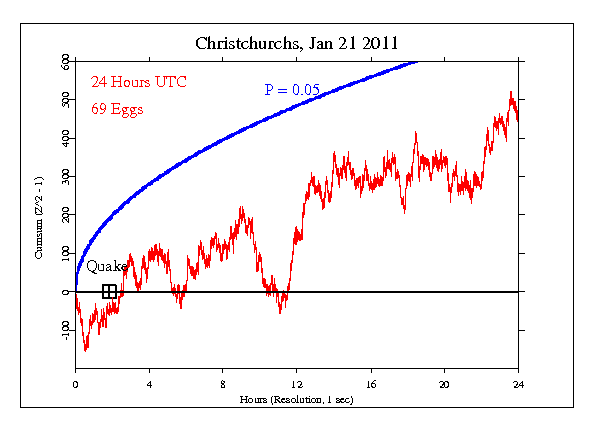|
From The Globe and Mail
One of New Zealand's biggest cities lay in ruins Tuesday
after a powerful earthquake toppled tall buildings and
churches on a busy weekday, killing at least 65 people in
the country's worst natural disaster in decades.
More than 100 people are still thought to be trapped in the
rubble in Christchurch. Rescue crews with sniffer dogs
fanned out across the city in search of survivors, some of
whom were able to send text messages or make phone calls
from under the wreckage.
It was the second major quake to hit Christchurch, a city of
350,000, in five months, though Tuesday's temblor caused far
more destruction than a stronger September quake that struck
before dawn on a weekend.
Nathanael Boehm, a web designer, said he was standing near a
tram track when the quake struck just before 1 p.m., sending
the eaves of buildings cascading onto the street below.
"It was horrific. People were covered in rubble, covered
in several tons of concrete,". Boehm said, adding
that he believed some of them had been crushed to death.
Christchurch Mayor Bob Parker declared a state of emergency
and ordered people to evacuate the city centre. He said it
was impossible to say how many people were trapped in the
rubble, but it was more than 100.
The GCP event was set for 24 hours, beginning at 11 AM local
time (22:00 Feb 20 to 22:00 Feb 21 UTC). The result is 86872
on 86400 df for p = 0.12843 and Z = 1.1338.
We note that this event coincides with some of the worst
moments of upheaval in the middle east, with the Libyan
regime apparently killing many people in Tripoli and other
parts of the country.

It is important to keep in mind that we have only a tiny
statistical
effect, so that it is always hard to distinguish signal from
noise. This means that every "success" might be largely
driven by chance, and every "null" might include a real
signal overwhelmed by noise. In the long run, a real effect
can
be identified only by patiently accumulating replications of
similar analyses.
|